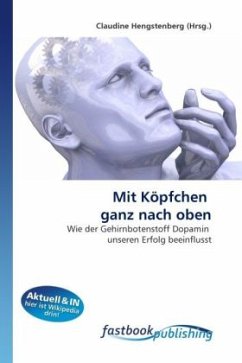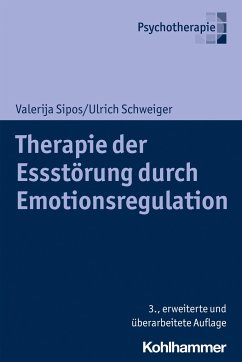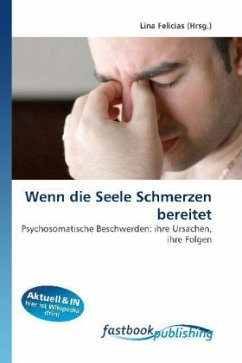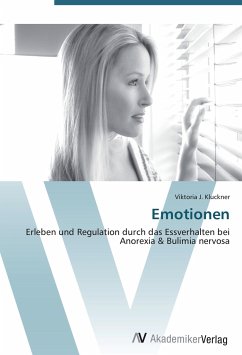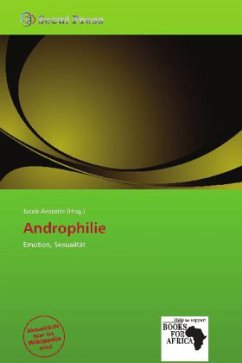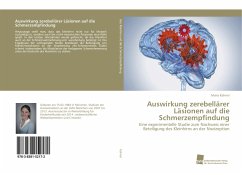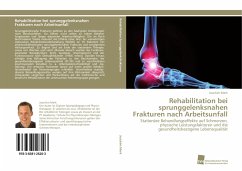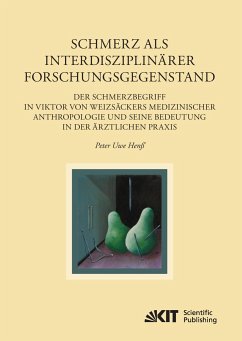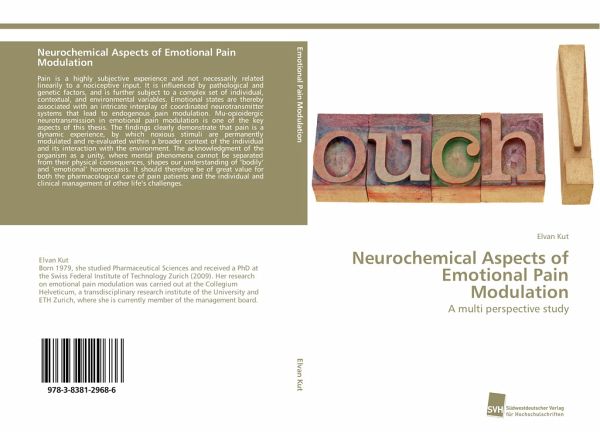
Neurochemical Aspects of Emotional Pain Modulation
A multi perspective study
Versandkostenfrei!
Versandfertig in 6-10 Tagen
46,99 €
inkl. MwSt.

PAYBACK Punkte
23 °P sammeln!
Pain is a highly subjective experience and not necessarily related linearily to a nociceptive input. It is influenced by pathological and genetic factors, and is further subject to a complex set of individual, contextual, and environmental variables. Emotional states are thereby associated with an intricate interplay of coordinated neurotransmitter systems that lead to endogenous pain modulation. Mu-opioidergic neurotransmission in emotional pain modulation is one of the key aspects of this thesis. The findings clearly demonstrate that pain is a dynamic experience, by which noxious stimuli are...
Pain is a highly subjective experience and not necessarily related linearily to a nociceptive input. It is influenced by pathological and genetic factors, and is further subject to a complex set of individual, contextual, and environmental variables. Emotional states are thereby associated with an intricate interplay of coordinated neurotransmitter systems that lead to endogenous pain modulation. Mu-opioidergic neurotransmission in emotional pain modulation is one of the key aspects of this thesis. The findings clearly demonstrate that pain is a dynamic experience, by which noxious stimuli are permanently modulated and re-evaluated within a broader context of the individual and its interaction with the environment. The acknowledgment of the organism as a unity, where mental phenomena cannot be separated from their physical consequences, shapes our understanding of 'bodily' and 'emotional' homeostasis. It should therefore be of great value for both the pharmacological care of painpatients and the individual and clinical management of other life's challenges.



